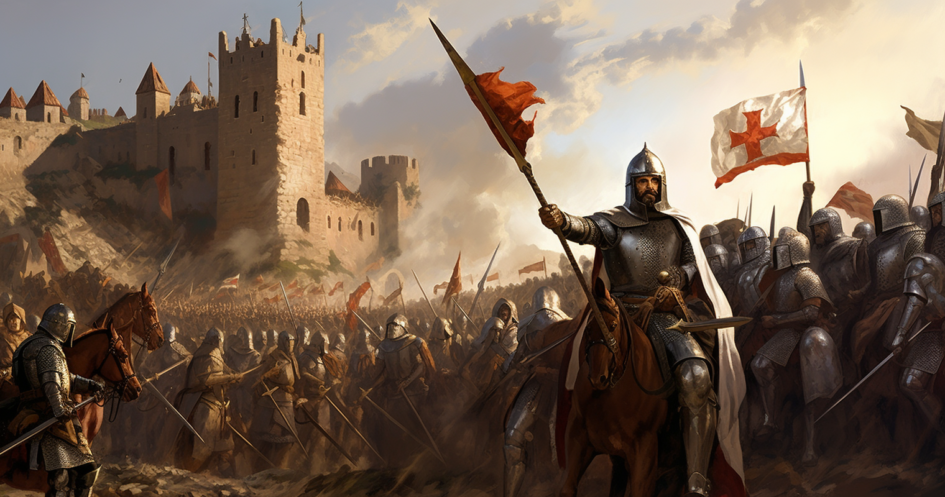The Crusades, a series of military campaigns initiated by Western Christians in the 11th to 13th centuries, continue to be a subject of historical debate and analysis. While it is important to approach this topic with nuance and sensitivity, understanding the context of the Crusades requires recognition of the wars of Islamic expansion that preceded them. This article aims to provide a historical perspective on the Crusades as a response to the Islamic conquests that began in the early 7th century.
The Rise of Islamic Expansion: In 632 AD, the Islamic faith emerged under the leadership of Prophet Muhammad in the Arabian Peninsula. Following Muhammad’s death, the Islamic Caliphate expanded rapidly through a series of military campaigns, conquering vast territories across the Middle East, North Africa, and parts of Europe. These conquests included the seizure of Christian Byzantine territories, the occupation of the Holy Land, and the threat of further expansion into Europe. Dr. Bill Warner of PoliticalIslam.com has documented 548 battles between the Islamic Caliphate and Western civilization.
The Crusades as a Response: Against the backdrop of Islamic conquests and the growing threat they posed to Christian communities, the Crusades emerged as a response from Western Christians. The initial aim was to recapture the Holy Land, particularly Jerusalem, which held immense religious significance for Christians. The call to action was often accompanied by appeals to defend fellow Christians who faced persecution and oppression under Islamic rule.
Religious Motivations and Political Realities: While religious motivations played a significant role in rallying support for the Crusades, it is crucial to recognize that political and economic factors also shaped this movement. The feudal system in Europe and the desire for territorial expansion, as well as the aspirations of Western nobility, intersected with religious fervor. Papal authority and the prospect of penance and salvation for participants added to the appeal.
Complexities and Consequences: The Crusades spanned several centuries and witnessed varying degrees of success and failure. While some Crusades achieved their immediate objectives, such as the capture of Jerusalem during the First Crusade, subsequent campaigns faced challenges and ultimately failed to retain lasting control of the Holy Land.
It is important to acknowledge that the Crusades were not without controversy and instances of violence and excess on both sides. Additionally, the consequences of these military campaigns had far-reaching effects, impacting relationships between Christians and Muslims for centuries to come.
Historical Reflection: Understanding the Crusades as a response to Islamic expansion allows us to gain a more nuanced perspective on this complex period in history. It invites us to consider the motivations and realities faced by those who participated in the Crusades and to recognize the intertwining of religious, political, and social factors that shaped these events.
Today, it is crucial to approach the Crusades with an awareness of historical context and to foster dialogue that promotes understanding and mutual respect among different faiths and cultures. By examining this historical chapter in its entirety, we can engage in more nuanced discussions about the complexities of religious and geopolitical interactions and work towards building bridges of understanding in our modern world.
Conclusion: The Crusades arose as a response to the wars of Islamic expansion that had engulfed vast regions of the Eastern Mediterranean and threatened Christian communities. While the Crusades themselves were complex and multi-faceted, understanding them within the broader historical context is crucial. This enables us to engage in informed discussions about the motivations, consequences, and complexities surrounding this significant period in history and promotes dialogue, understanding, and mutual respect among different cultures and faiths in the present day.
 The Libertarian Catholic
The Libertarian Catholic
















